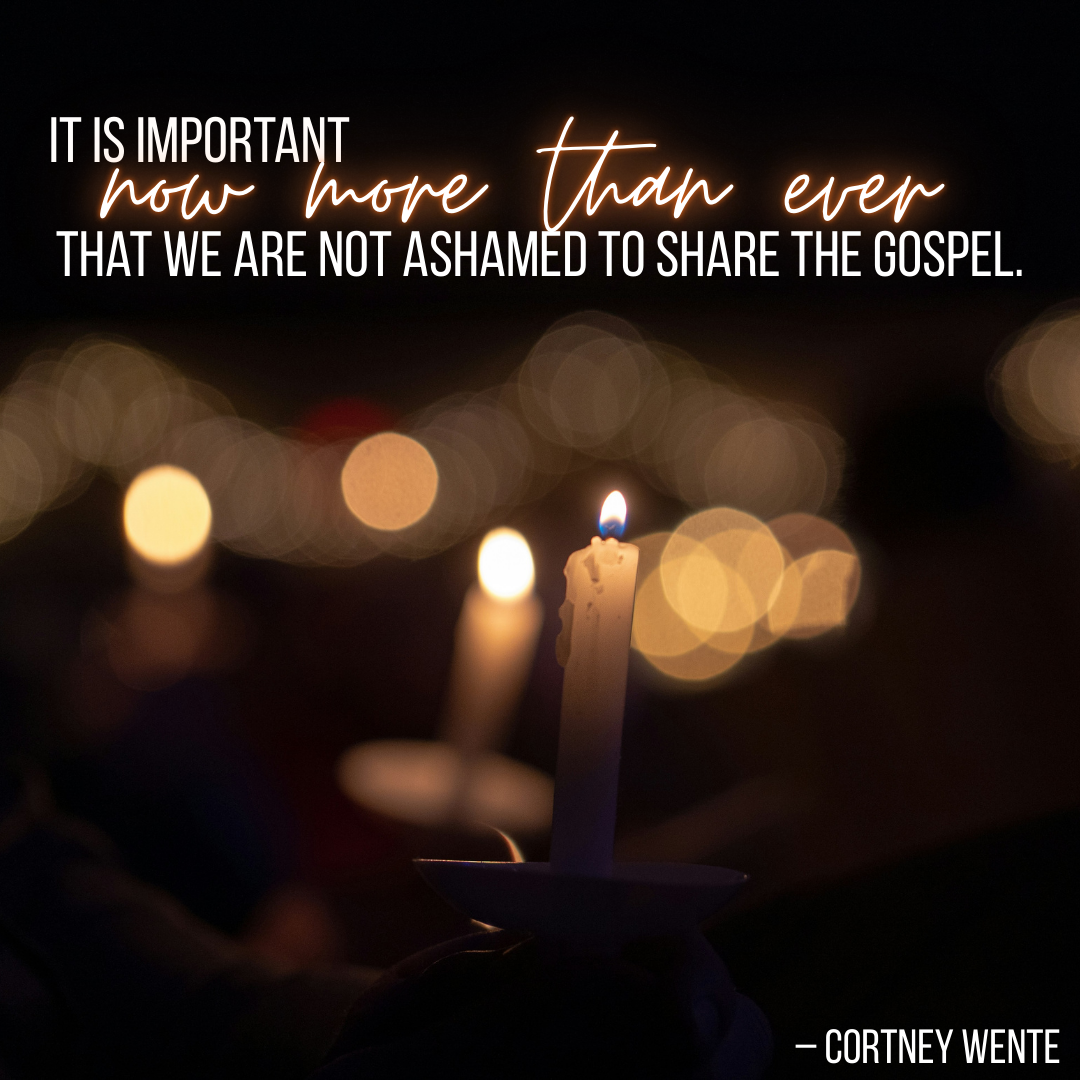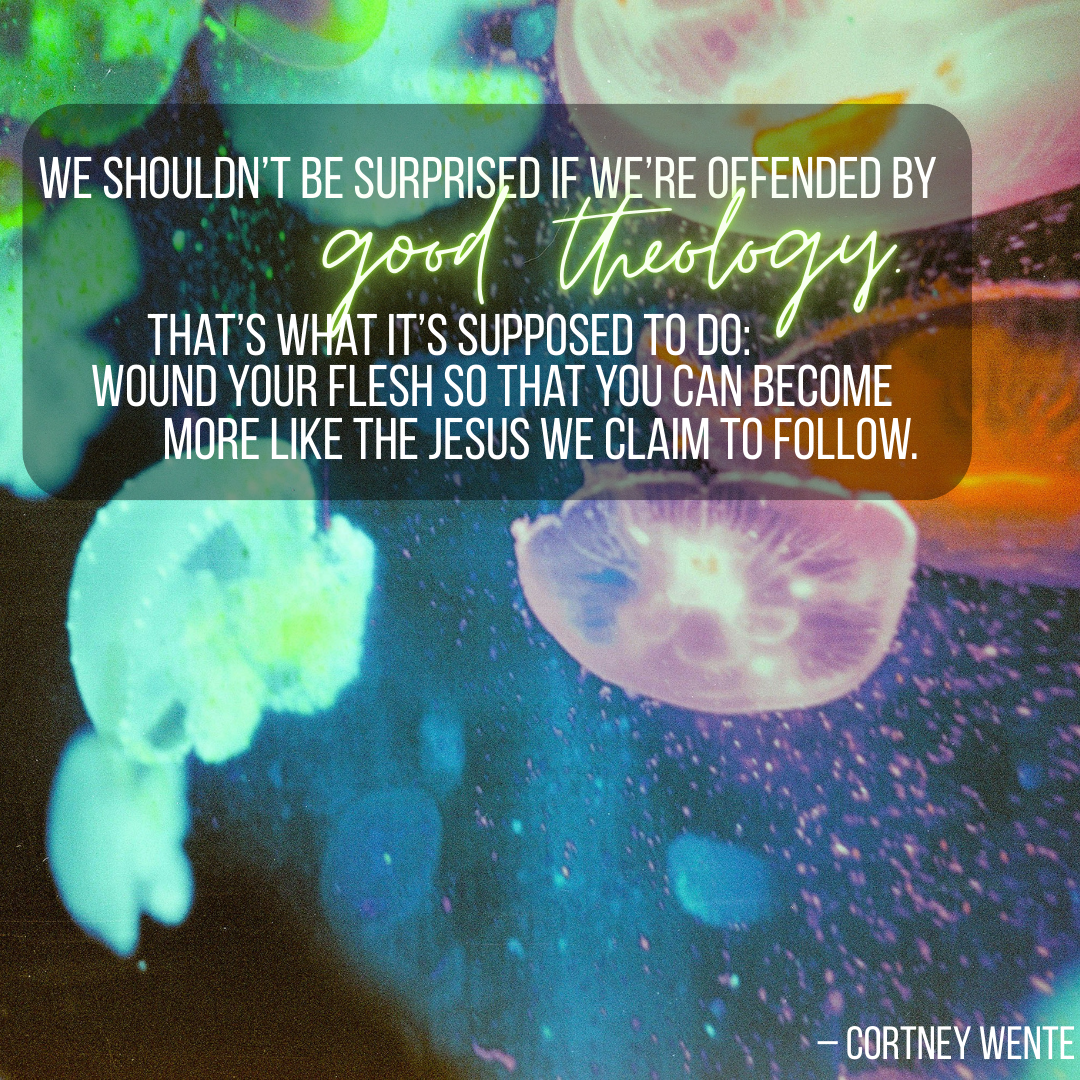Playing Evangelism, the Long Game
An older gentleman was featured on Humans of New York’s Facebook page this week. He shared his story of running for New York City Council ten years ago in Eastern Queens. He speaks about how even just ten years ago, in a post-9/11 city the people of his community were legally abused because they lacked political power at even the lowest levels. Most were not even voters.
This man’s community was, more specifically, South Asian Muslims.
Being Forgiven and Sinning No More
We’ve all done it– we’ve all looked at the sin of someone else and judged it to be greater than our own. Maybe, in our own pride, we’ve even wished that God would pour out justice on that sin.
In John 8, we see a woman who is brought before Jesus to judge for her sin. John writes that she was brought to the temple and presented to Jesus as an adulteress and was caught in the very act– the punishment for which was to be stoned to death. The aim for these religious leaders was to put Jesus in a catch-22: condemn the woman for her sin thus painting Jesus as a strict, cruel judge, or for Jesus to condone the adultery which would make him wantonly lax on unrighteous, immoral sin.
Sharing the Gospel to Awaken More Faith
This past weekend, Sam and I went on a date. The plan was to do a workshop at a glass blowing studio, have dinner, and maybe drive around together. Saturday morning, Sam said, “There’s a rally happening tonight in Charlie Kirk’s name. Would you go pass out gospel tracts with me?”
At first I was hesitant. This did not fit in with my plans to spend time together; it didn’t sound like the ideal date night I had been looking forward to. Then I caught myself thinking: isn’t this the kind of man I prayed for? The kind of man who went out of his way to share Jesus with others? These were the days I dreamed to have with my husband: to do ministry side by side and to serve God together.
Pursuing Good Theology
Back in the early 2000s, our scope of who could be accessed for Biblical teaching was limited. You had your pastor at your local church, maybe a few tele-evangelists, and whatever books you could get your hands on if you had a Christian bookstore around. It was probably more simple to sift through sources and try other teachers if the Gospel wasn’t being preached.
Compare that to now, and the information, teachers, and material at our fingertips is so endless, you could never possibly get through it all. With the internet, you can access this past Sunday’s sermon from any given church that has a video camera, a microphone, and a YouTube channel– and that includes megachurches right on down to the tiny, country church in America’s smallest town.
For When the Gospel Gets Uncomfy
Have you ever wondered how Jesus went from feeding the five thousand, to only have a handful of people at the foot of the cross when He died?
The truth is, Jesus had His twelve disciples that He hand-picked and called to ministry with Him, but there were other disciples that also travelled with Jesus to the different places that He went to in the three years He taught, ministered, and served. Not everyone went everywhere the way the twelve did, but Jesus had a way of attracting followers just by nature of what He was doing.
Evangelize Like Jesus, Part Two
Is evangelism a long-game or a spontaneous thing?
Lots of people will say it’s a long-game. You build a relationship and slowly share Christ as a trust is built with that family member, friend, or coworker. You intercede for that person. You love them and ask that God would draw them near to Him, making it possible for them to one day believe and follow the Lord.
Evangelize Like Jesus
From a very young age, I was exposed to evangelism in practice. My childhood church used to do outreach events during summers in highly trafficked places, like the beach or public parks. They’d rent the big town pop-up stage and stand out from early in the morning to after the sun had set cycling through worship teams, street preaching, and people sharing their testimonies.
All the while, there were people walking through the crowds, asking people if they needed prayer or sharing Jesus with others. Occasionally, there were people who were led to believe in God, or wanted to be baptized.
Where Does Our Belief Come From?
Everyone knows this verse. It’s one that kids are taught as one of the first things in Sunday school. It’s on t-shirts and written on the bottom of shopping bags. Even people that don’t go to church or subscribe to Christianity know this verse. It’s a succinct and clear summary of the Gospel. It explains God the Father’s heart and His intention to save those who believe. It shows us what the true Church inherits for trusting in the Lord with all our hearts. It shows us the promises of belonging to the Lord and gives us the way to be recipients of them.
But do we take this verse for granted? Are we desensitized to its meaning? Do we really consider each and every word of what it’s saying?
Christmas 2024: The Name that Inspires Praise
Have you ever thought about what it would be like to meet baby Jesus? What would your reaction be? Would you ooh and aah over the smallness and the preciousness of Him? Would you weep as you held the incarnate Lord? Would you speechlessly observe and take weeks to process what you witnessed? Would you marvel at the sheer wonder and beauty of the moment, as you met the God of heaven and earth, finally come to be with His people?
Christmas: Pulling Back and Refocusing
When I was growing up, Black Friday was a huge event. People would finish up their Thanksgiving meal and head out to camp in front of a store all night in the freezing cold to get in as soon as the doors opened early morning the next day. There would be news stories of people that were trampled and died trying to get the next best deal. Flash forward to this year, and you’d never even know that people would literally risk their lives to kick off their Christmas season. I don’t think I know one person that got up before dawn let alone ventured out to shop. Whether that has something to do with online shopping, the lack of sales, or money being tight, maybe we should take advantage of the fact that this Christmas isn’t starting off with the same consumerist kickoff it has in the past.
Christmas in Carols: O Holy Night!
When the radio crackled out its first broadcast on Christmas Eve in 1906, listeners tuned in to the voice of Reginald Fessenden reading Luke 2– the birth of Christ– before he picked up his violin and played “O Holy Night.” Yes, that’s right. The first song played on the radio, after years of exclusively morse code, was a hymn depicting the birth of Jesus. The song was written in French as a poem originally by Placide Cappeau in 1843 and set to music by Adolphe Charles Adams for a Christmas Eve mass in 1847. Although the church accepted and loved the hymn at first, it was eventually banned after leadership found out that Adolphe was Jewish and Placide walked away from his faith. Eventually, about a decade later, the hymn would fall into the hands of an American minister, John Sullivan Dwight, who would change some of the lyrics to be the ones we know today.
Christmas in Carols: Hark! The Herald Angels Sing
Today, we begin with a laugh: Sam was scrolling through Twitter a few nights ago and started to chuckle. When I asked him what was so funny, he told me that someone asked via tweet, “Who is Harold Angel?” Of course, this person would be confusing Mr. Harold Angel with the opening line of the same Christmas hymn called, “Hark! The Herald Angels Sing.” The lyrics were originally written by Charles Wesley as a poem and later put to music by George Whitfield in 1753, when the original first line– Hark, how the welkin (heaven) rings– was revised to what we know and love today. What strikes most historians about this hymn is the lyrics; not only are they theologically sound, but they are beautifully put. In three stanzas, this song presents the Gospel in a meaningful and succinct way, which is probably why it has stood the test of time– almost 300 years to be exact.
Modern Psalm: Help me to be Your Salt and Light
Hey Pops, Thank you for always being steady, even when I am not. Even when the world is not. Even when my circumstances are not. You have always been over all, in all, and walking with me through everything. There was never a day where you weren’t there, holding me together. There was never a moment when you didn’t know the outcome. There was never a second where you were taken by surprise.
Why Woke Gospel is False Gospel
We are living in an age where social justice is one of the most important aspects of society. It’s seeped into everything. If you’re interviewing for a new job position, social media posts from 10 years ago can disqualify you for candidacy. Conversely, if a company is not perfectly politically correct or deemed “woke” by mainstream culture, they may struggle to find people to put on their payroll. In schools, kids walk around endlessly barraged by political and social agenda, being led to believe that if they think differently than the mob, they’ll be rejected and hated. Don’t even think about logging onto Facebook without coming across some kind of argument or call to cancel someone else.
Why Attractionalism Hurts the Church
As long as the church survives, there will be a conversation about growth, numbers, and membership. Pragmatically, for many of them, a church is not only a spiritual house, but a business. More numbers means more tithing and giving means more resources and that helps ensure that the church not only remains open and serving the community, but that it continues to glorify God– or so you hope. No matter where you go, what theology that church teaches, there will always be that goal: to reach unbelievers, new families, and trying to get more people to stay and engage. But over the past 20-30 years, with the addition of social media, globalization, and mega churches, that idea has lent itself to a whole new pitfall of false gospel: attractionalism.
So What’s Biblical Prosperity then?
In 2019, I left the church I attended my whole life. As a child, teenager, and young adult, it was a wonderful place to learn about and develop a relationship with God. The leadership was amenable to allowing youth to serve and be heard, and in turn, that made me and my friends excited to be a part of that body of believers for many, many years. But at the age of 25, I felt the Lord leading me into a new direction. In a lot of ways, that transition out of everything I knew was scary. I was comfortable in that church and it had a large hand in shaping me into who I was. I loved my pastor and the community that I’d trusted and gotten so used to. But once I left, I realized that up until that point, I didn’t really know my Bible. I had taken everything that was preached from the pulpit as gospel. And that’s not to say that my pastor was a false teacher or anything, but it is to say that I never really tested the full measure of scripture for myself, asking the Holy Spirit to reveal Himself in the Word to me on a personal level.

















